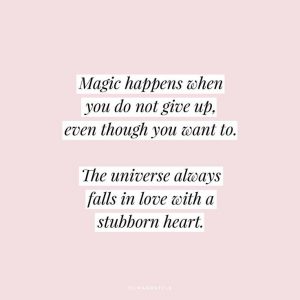Here is the next article as part of the #Authortoolboxbloghop organised by author Raimey Gallant.
The #AuthorToolboxBlogHop is a monthly event on the topic of resources and learning for authors. Feel free to hop around to the various blogs and see what you learn! The rules and sign-up form are below the list of hop participants. All authors at all stages of their careers are welcome to join.
I started a blog series in Hungarian with two writer friends, Gabriella Szaszkó and Klári Ladányi where we blog about different writerly subjects we encounter and that we find interesting.
For my January #authortoolboxbloghop post I decided to use one of the topics we often discuss with my friends: can writing be taught? Is it enough to be talented to succeed? Or the contrary, is it enough to do a creative writing MA or read three how-to books and voilá, you’re a writer?
I come from a country where many people still believe that writing is solely a talent. If you have it and the muse is perky enough to kiss you, you’re going to write and you’re going to write well.
Many people (even some book bloggers, I’ve heard!) are completely oblivious of the fact that How-to books in this topic exist and that it is necessary to educate ourselves in the tools of the trade. We barely have any universities offering creative writing modules and the few that does, focus almost solely on “high literature”. (We have a gigantic divide between “high” literature a.k.a. Stuff written by “acknowledged” writers published by established publishing houses, read mostly by a select few, and “popular” literature, which is read by many, but is regarded as something without literary quality and shunned by the gatekeepers of “real” literature. This makes life difficult for people like me who want to write quality genre fiction with. But this a completely different story.)
 As for me, I think writing is an art and a craft. Besides the inspiration, you need to know the tools of the trade and to some extent you need to be conscious of what you’re doing. Of course, one doesn’t need to enroll to super expensive writing courses, but it’s important to have an open mind and a willingness to learn.
As for me, I think writing is an art and a craft. Besides the inspiration, you need to know the tools of the trade and to some extent you need to be conscious of what you’re doing. Of course, one doesn’t need to enroll to super expensive writing courses, but it’s important to have an open mind and a willingness to learn.
On the other hand, I don’t think everybody who completes a creative writing MA will become a writer. I think you can learn how to cook up a perfect story, but you need to have that divine spark that animates it and makes it a living creature. Without it, it will be just a beautiful body lying on the operation table. For lack of a better word, I usually call this little something the X-factor. It’s the thing that gives your story its soul, but it’s also the force that pushes you through not to give up, to fight even against the odds, the little plus distinguishing the real artist from the talented craftsman.
One shouldn’t think, however, that just because we have read X number of books, we’ve officially graduated as writers. We become better writers by educating ourselves, but knowing all the tricks is sadly not enough. I think to become a truly great writer we need to have a deep and merciless self-knowledge, which, paradoxically also means that we can realise that maybe writing is not our vocation after all, and we will never write the next great American novel, but we can still write for the sheer joy of it.
What do you think? Is writing like a magical power some people have while others don’t, or everybody can learn it.
Find my August #Authortoolboxblog hop post here.
Find my September #Authortoolboxbloghop post here.
Find my October #Authortoolboxbloghop post here.


I also think it’s a bit of both. It can be taught, but it’s going to take some longer to learn than others. Those who subject themselves to a ‘merciless’ learning schedule will have a better chance at success.
I agree. Everyone chooses how they want to approach it, and at a certain point it’s a question of “Are you going to try for X years, and then either succeed or give up?” or “Are you going to try, and keep trying, regardless of the outcome?”
Quote:
“I think you can learn how to cook up a perfect story, but you need to have that divine spark that animates it and makes it a living creature.”
Exactly! And I think the Edison quote above sums it up brilliantly, though backwards. Also, you have to learn the rules well enough to know when they can be broken. Of course I’m not a writer (unless blogging counts LOL), but these are my 2 cents…
Thanks for sharing this post. I’m firmly in the mindset that good writing can be taught, but the extra mile a writer puts in that can’t necessarily be imparted in a lesson will push good writing into great writing. However, in any scenario, regular practice, exposure to writing, and motivation are all necessary. Thanks for sharing this post! It’s an interesting one to ponder.
People also believe this about art and music, and it’s just a false there. While some people may have an easier time learning to draw or sing, no one is a master from the beginning. Everyone must practice.
Writing is the same. No matter how terrible you are at it, you can improve. The more you work at it, the more you will improve. If you love something, do it.
I definitely think writing can be taught, and talent can even be cultivated. But I think the PASSION you need to be a writer isn’t something you can get elsewhere–it’s either in you, or it isn’t. And that’s the big deciding factor. Discipline also plays an important role.
I agree with you: I think having a spark is important. I love the analogy you’ve used, and I don’t think that ‘X-factor,’ can be taught. It’s something magical that you have or you don’t, in my opinion. (But I’m a fantasy writer, so I would believe in magic :D)
I’m self taught, mostly by writing a lot and reading a lot of articles. Writing structure, developing characters, etc can all be taught, it just takes a spark to breathe life into a story 🙂
I will admit that once upon a time I was one of “those” book bloggers who didn’t know there were how-to-write books (or, worse, for they were only for people who didn’t have the natural talent).
Now I know better. I think writing is like most other professions: to be competent and successful takes a combination of natural talent and hard work. I have little talent with most branches of maths and science, and while I know enough to get by, I’ll never be brilliant at either. As for sports … let’s not go there.
The same has to be true for writing. Some people have natural talent sharpened and improved by training. Some people are passable and have to work harder, but can still be good. And some people should stick with writing as a hobby (in the same way as I should stick with sports or music as a hobby).
I completely agree. It’s a mixture of the two. And yeah… music and sports are only a hobby for me too. But hey, one cannot be brilliant in everything.
There are a lot of very talented people that choose not to be authors. Then there is the rest of us who muddle along with the skills (learned or not) to put a story together. I try not to look too hard at my skill set.
I let the people I submit to be the judges and so far I’ve had a few things published, but I’m not millionaire. Talented or not, I’m following my foggy road. 🙂
Anna from elements of emaginette
Thanks for sharing your country’s view on writing. It is interesting to hear another perspective. I think you are completely right, writing is an art and craft. You can learn to be competent at it through solely hard work but to transcend you have to have talent as well. I will continue my personal journey of working hard (and loving every minute) and hope I have enough talent to give any readers I am lucky enough to have a few moments of joy.
I tend to think that talent can include a certain natural affinity or skill for something, but the biggest factor is the desire and will to keep at it. I’ve met people who naturally excelled at math, or engineering, but felt no desire to pursue it.
Over time one person’s natural affinity can be overwhelmed by another person’s focused, consistent effort to improve.
Everyone has strengths and weaknesses, and writing is such a complex set of skills that I’m skeptical one person can consciously remember all the aspects of good writing. I’m frequently jotting down notes and relearning things as they become relevant to whatever I’m working on.
I think it’s kindof ironic that writing is a combination of creativity (combining odd things to create new ideas), and proper spelling & grammar (remembering and following the rules that govern them).
I definitely think there is no line separating “writers” from “those who are not”, and there is no line that separates the students from those who “know it all”. Storytelling is simply too vast, and too “in flux”.
I also agree that part of “being a writer” is embracing a certain lack of control. I think we can only choose “to write”, and study/learn, and see what comes of it. We can’t decide whether our stories are good or bad, only how hard we try to make them good, and when we decide it’s time to move on.
I am also of the dominant opinion that writing can be taught but telling a story requires a bit of talent. I feel that’s the place I’m in right now. I can write a fabulous sentence, but telling a good story… well, that’s an area where I’m constantly seeking to grow. It’s nice to be in such good company on the journey.
Interesting subject and your post is well thought out. I wrote a post several years ago titled, “Are Great Writers Built or Born?” My conclusion was there is evidence to point either way. I clearly am not a great writer, but getting better each year and with each book. Yet, there is no doubt some writers have something special. In the post, I compared me to my father who is a gifted artist. There is no amount of training that would give me the skills he has.